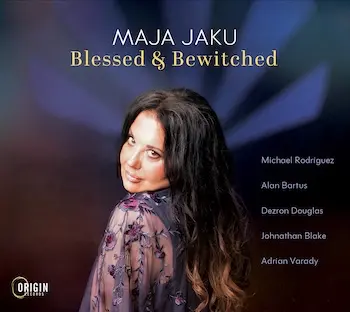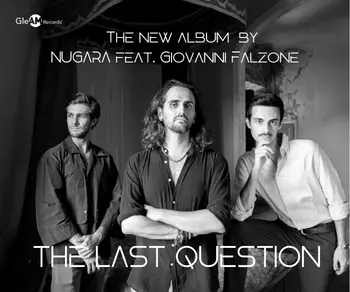This is one of a series of taped interviews with musicians who are asked to give a snap opinion on a set of records played to them. Although no previous information is given as to what they are going to hear, they are, during the actual playing, handed the appropriate record sleeve. Thus in no way is their judgement influenced by being unaware of what they are hearing. As far as possible the records played to them are currently available items procurable from any record shop.
Although Ben Webster is one of the most self-effacing musicians I have ever met, he is undoubtedly one of the real giants of the saxophone. His tone is large and very warm and it is easy to see, by the graceful melodic lines he uses, that he is a keen admirer of the saxophone playing of Benny Carter. A native of Kansas City, he originally was taught to play the piano, which does explain to some extent his outstanding love for the stride plaxers of that instrument. For two periods he was a member of the Ellington band, and in addition has also played with Benny Moten, Andy Kirk, Fletcher Henderson, Cab Calloway and Willie Bryant. A most musicianly musician. – Sinclair Traill
Zonky. Fats Waller. HMV CLP 1042
Well, it’s rather hard in a way for me to explain Fats, I love his piano so much. He had exceptionally large fingers, his pinkie finger was as large as the average man’s thumb, but he never made a mistake when he played that stride piano. It seemed that those large fingers must get in the way somehow and that he would play two keys at a time, but he never did. His playing was really fantastic and he was such a happy guy. He was happy both on and off stage and it shows in his playing. Both he and that fine little band he led get a real happy sound. There was one other quite outstanding thing about Fats. He could play at speed and at the same time he would crack a few jokes and generally fool around, but he never lost that concentration necessary to play top piano. He didn’t only play jazz, you know. I remember that he asked me over to his house, sometime in the early thirties, and all he played me were classical records. There is no one who plays like him today, except a guy called Ralph Sutton. I went out to his house on the Coast recently and he played me record after record bv Fats. But he is a wonderful pianist himself, right up with the top ones.
What Is There To Say? Willie The Lion Smith. Mainstream S 6027
You know that’s the kind of music that I wake up to every morning – just puts me right for the day. Waller, The Lion, Art Tatum or Ellington they can, any of them, start the day for me. And every time you listen to guys playing the piano like that, each time I say, you hear something different. They had such a great scope on the piano, those men.
Carolina Balmoral. James P. Johnson. Blue Note 7011
Well, James was the daddy of them all. I was around in the days when they had those piano battles, and I used to listen all the chance I got. I made a record with James back in 1944. Vic was on it, I remember, and Sidney De Paris and I think big Sid. James played a thing called ‘Stride’ something or other, which was fantastic. A pity one can’t get those old Blue Note records any more. It was a good session and we had a lot of fun that day. I went out to see James when he was ill, and he was such a wonderful fellow.
You see, I knew all these top piano men before I actually met them. Basie had come to Kansas City, and he filled me in on them before I left for New York. He told me that Fats, James P. and The Lion were tops, but that I should first meet The Lion. That was important, he told me, for Lion was kind of something different, and he would take me around and introduce me to all the other guys I should meet. And he did. I was with Blanche Calloway at that time, and we had a wonderful pianist with us, Clyde Hart – a young fellow, but he could play. I remember we had a day off once, and Clyde and I went down to New York and met The Lion. Well, he was very exact, you know, but he made us welcome and showed us around the places where all the top piano men were working. And we ran across James that night, and he was playing so wonderfully well that even The Lion didn’t ask to sit in.
Tea For Two. Cassino Simpson. Paramount CJS 109
Well, that had me completely fooled! I was sure, quite sure, it was Earl. Cass Simpson from Chicago. No, I never heard of him. Anyway, I am sure that every night for a long, long time, he must have been looking over Earl’s shoulder, with both his eyes and his ears open. He makes a few mistakes here and there, which Earl wouldn’t make, but the similarity of his playing to Earl’s is quite extraordinary.
Undecided. Earl Hines. Stateside SL 10116
I heard Earl quite recently, of course, in France and one of the things that struck me was the expression on the faces of the youngsters who were hearing him for the first time. Astonishment is the only word for it. Earl was right with it, in every way, and he looks even younger than most of the pianists playing today. I’ve known him for well, I guess . . . two years? I say that because Russell Smith, who used to play first trumpet with Fletcher Henderson, always said just that. Pop Smith we used to call him and he was Joe’s elder brother, along with Luke – both musicians.
Anyhow, Benny Carter, Rex Stewart and myself, we went out to dinner one night with Ulysses Livingstone at his house. After food we were all just sitting around chewing the fat and Rex asked Pop Smith how long ago something happened and Pop replied, ‘Well, I think it was about two years…’ It was really about twenty, but we always say ‘about two’, and that’s why I said that about Earl. When I heard him play at the Blue Note in Paris what really surprised me about him was that although he had been playing for all those years, he hadn’t lost one thing – not one single thing. He was a pacesetter, you know, and as I told him, he just knocked me out. He has seen many of them come and many of them go, but he is still Earl, as fresh and as young looking as I always remember him. No one plays like Earl.
The Sound Of Music. Herman Chittison. Jansara JAS 83001
Chittison is another great pianist, and it is such a pity that he is not better known. He plays with such authority and a quite unique style of his own. He has what I call a full style, uses all the instrument. I don’t know why he has not become better known, for he is exceptional. A solo piano player, I should say. Good lot of modern ballads here, and not what you would expect a piano player to play, but Chittison makes them sound good. It is an art to play solo piano like that, like it is an art to accompany a singer. A lot of piano players sound good when playing in a group, but when they are asked to accompany a singer they are lost. Same as this man here, this is real solo piano; and very good.
Gone With The Wind. Art Tatum & Ben Webster. Columbia 33CX 10137
Well, Tatum he could play anything and everything. Accompany a singer perfectly, and everything. No one like him. Though you know I once heard George Shearing play near-perfect ‘Tatum’. A lot of people underrate Shearing, and that is a pity. He has a tremendous amount of talent. Of course, most pianists try to take a bit from Tatum, they listen to his things naturally. It’s like going to school when you listen to Tatum. In the same way, when you listen to Benny Carter, in addition to playing a solo, he will also be giving you a lesson at the same time. You listen to Carter and you listen to Tatum and you learn! If you have any sense you take a lesson when you listen to these people. And that’s right!
In my opinion the four greatest saxophone players are Benny Carter, Johnny Hodges, Hilton Jefferson and Coleman Hawkins – they are the greatest. I like Benny because he has the knowledge and the technique, and the sound – in fact, everything. Johnny has the feeling that I don’t think anyone else on earth can acquire; the true feeling. A lot of people are rather asleep on Johnny, because they think he can only play slow pieces but Johnny can swing and can play fast – in fact, I would say he is a man not to be pushed. No, no one can push Johnny. Then, I like Hilton Jefferson for the playing of really beautiful things. When I first joined Fletcher in 1934 I have seen fellers at a party, away from home you know, made to cry by Jeff – people I didn’t think had a tear in them. Jeff makes the most beautiful sound of anyone. And I think it should be needless to say anything about Coleman. Everyone knows what he can do. He does just everything and does it so well.
Liza. Donald Lambert. Giant Stride. Solo Art BJ 18001
In the early days, you know, like Fats, James and the Lion used to go along together, so too did Tatum, Beetle, Marlow Morris and Donald Lambert, the four used to run together. They used to meet at a place named Tom Tilman’s at 133rd and 7th Avenue, where they would play two or three tunes apiece. When the place closed they’d go and find some other place to play and so on until the next day. I have never heard so much stride in my life – it was beautiful. I would just love to have all I heard then on tape. Beetle was wonderful, but he never recorded – strange. And, of course, Donald Lambert recorded very little. This is just wonderful. Giant Stride, indeed.




